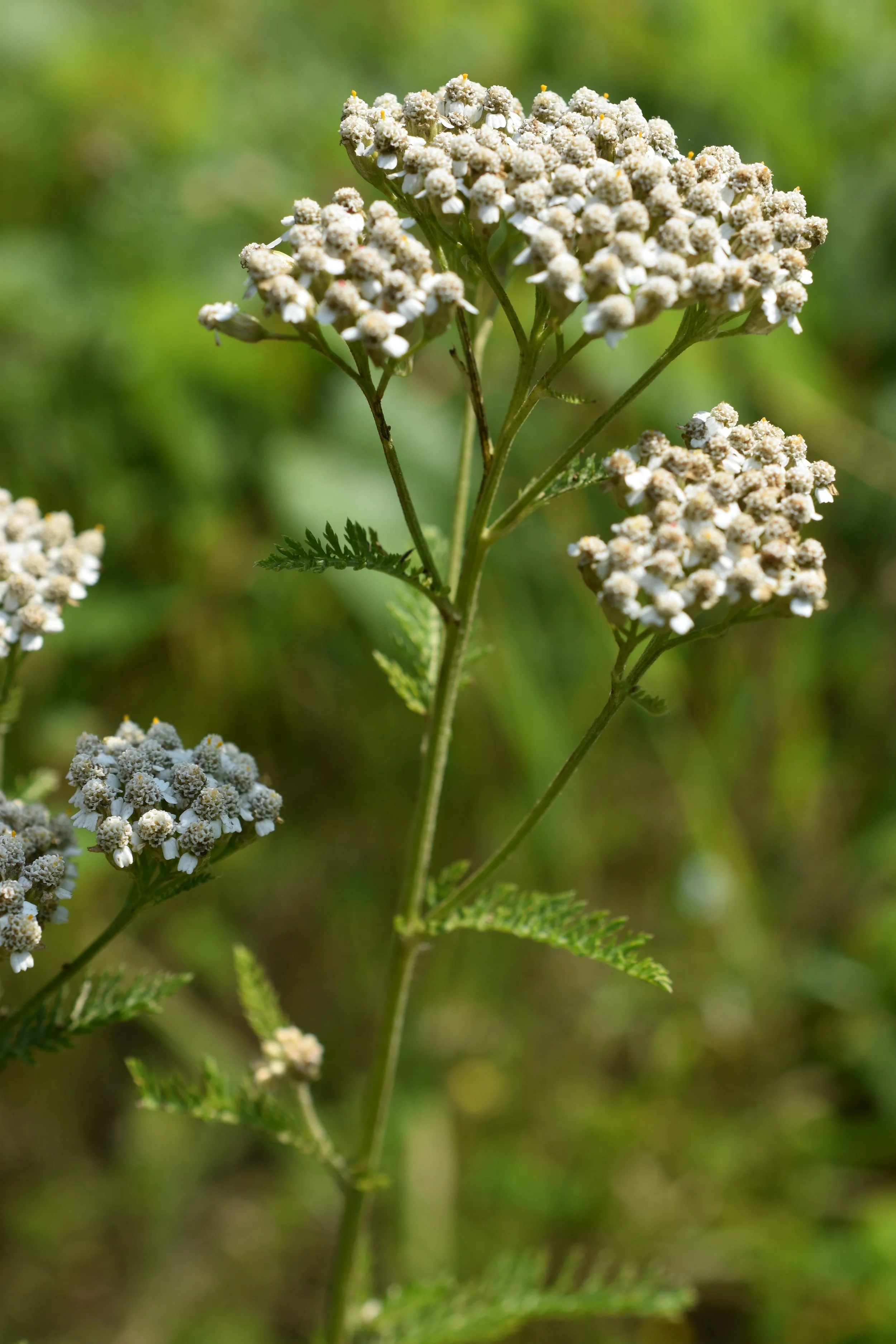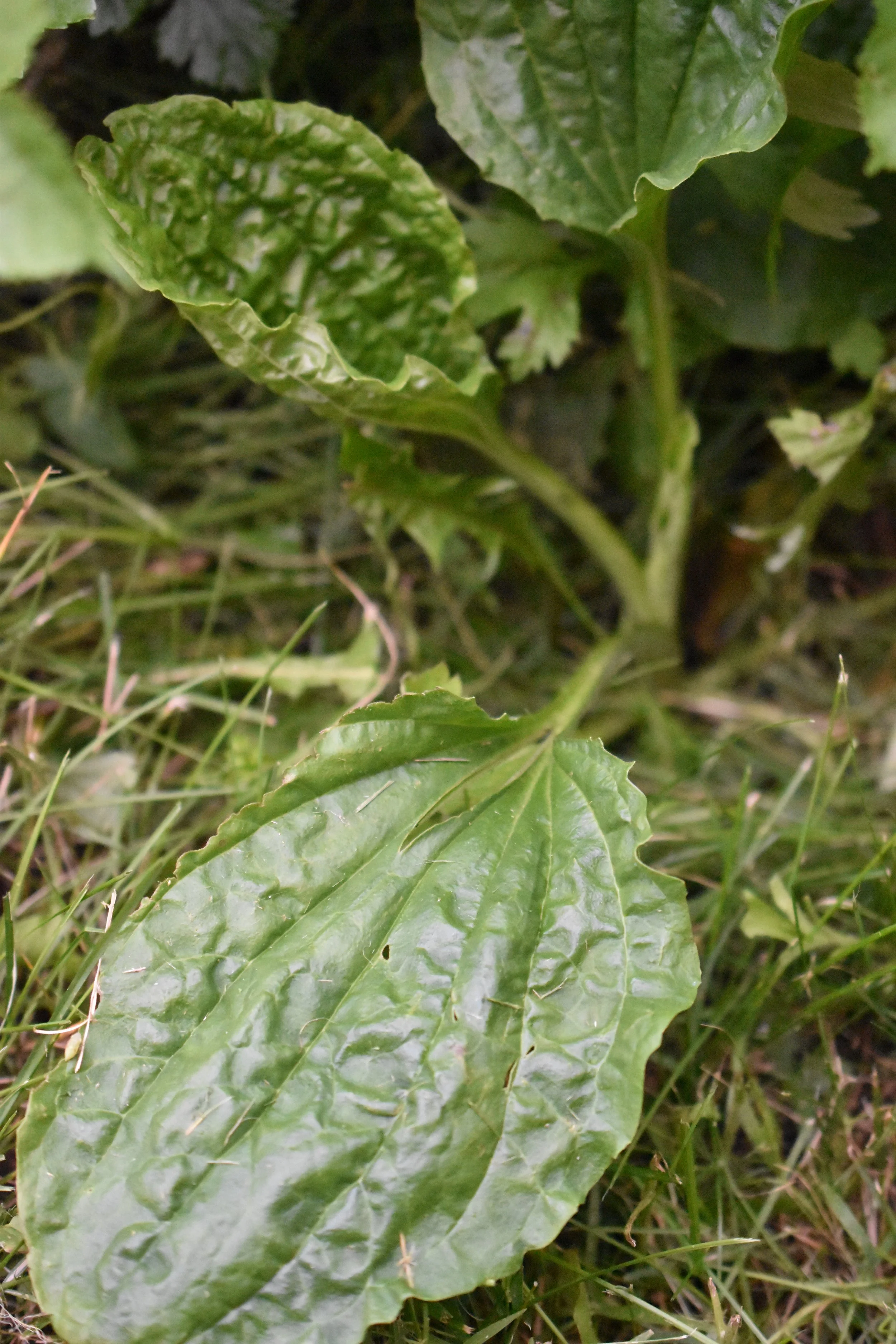Herbal Nasal Spray for Allergy Support
If you take over-the-counter (OTC) medication to deal with your allergies (the sinus kind), this could be a good herbal remedy for you! The recipe below is relatively neutral in terms of energetics of the herb mix, which means most people will be able to use it without much reaction.** It is perfect for supporting your sinus activity during those leaky times, whether it’s leaking out the front (AKA runny nose) or down the throat (AKA post nasal drip).
RECIPE & DIRECTIONS
1 Tbsp yarrow (Achillea millefolium) flower/leaf, dried (2 Tbsp if using fresh herb)
1 Tbsp plantain (Plantago spp.) leaf, dried or fresh (2 Tbsp if using fresh herb)
2 C distilled water
1/4 tsp salt
Complete a cold infusion of the herbs. This is important for getting the demulcency from the plantain (mucilage does not extract into hot infusions).
Put the herbs (broken up into small pieces) in a glass jar or bowl.
Add the distilled water to the jar/bowl.
Place an airtight lid on the container.
Shake up the mixture to make sure all the herb is submerged in the water.
Place the closed container in the fridge for 3-4 hours, or overnight.
Strain the herbs out of the water with a coffee filter. (This is a crucial step because you don’t want little floaties going up your nose!) Be sure to squeeze out all the juice from the plant material - get as much of that herbal goodness out as you can.
Add the salt. Stir until the salt has dissolved completely.
Pour a small amount into a nasal spray container. This could be a repurposed nasal spray bottle you bought at a pharmacy or a glass nasal spray bottle. Either way, make sure the container is clear of debris and sanitized.
Whatever amount of the infusion remains can be poured into an ice cube tray and frozen for later use!
Store the nasal spray in the fridge and replace the infusion with the frozen ones (melted) every other day. This is also a crucial point with this remedy because the infusion you created is basically just a tea that you could drink (Yeah! Go ahead and taste it. You might be surprised about how pleasant it is.). Teas do not have a long shelf life - only about 2 days, maximum, when stored in the fridge. You definitely do not want spoiled tea going up your nose!
You will need to experiment with the dosage for your particular needs, paying attention to any adverse reactions or constitutional changes to your body (especially any dryness in your nostrils and throat). I have found that using the spray in each nostril 1-2 times a day works best for my post nasal drip (which helps prevent my asthma flares). These herbs are relatively safe to use long-term, but again, be aware of how your body might react to it, negatively or positively. “Everything in moderation” is key, so it might also be a good idea to use it for a month, then take a week off, and go in cycles like that (or whatever other cycle you find that works for you).
WHY THESE HERBS?
Why yarrow?
Simple answer: because he’s astringent (tightens bodily tissues).
Long answer: When you have a runny nose, your sinus tissues are too relaxed, which causes fluid to leak out of your nose or down your throat. Astringent herbs help to tighten those tissues, which helps to slow down or stop the leakage. I use a yarrow oil infusion for bloody noses and wounds for this same tissue-tightening action - it’s almost like magic! Yarrow is both warming and cooling in different situations. I find this particular preparation to be more cooling to neutral.
Why plantain?
Simple answer: because he’s slightly astringent, demulcent (contains mucilage, which coats and moistens tissues), and is just so versatile.
Long answer: Just like with yarrow, plantain will help tighten your nasal tissues, but less than yarrow. I have found that plantain’s actions are powerful, but not over-powering or too strong. In addition to being astringent, he also brings a demulcent action that helps to balance out this formula. It would not be a good idea to use two very effective astringents without a moistening herb to round it out.
**These statements have not been approved by the FDA. Always check with a qualified healthcare professional before trying any new medications, including herbs. Yarrow is from the Asteraceae plant family, which some people have allergic reactions from contact. If you have a reaction, stop use immediately.


